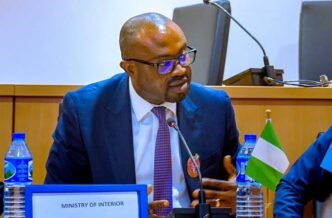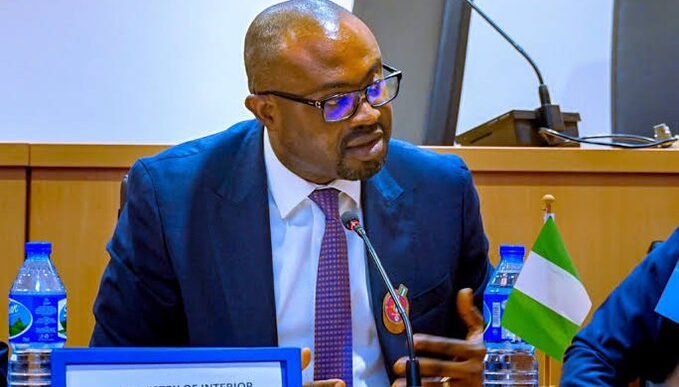Abuja — October 31, 2025
In a significant move toward positioning Nigeria as a leader in climate finance and green investment, President Bola Ahmed Tinubu has approved the National Carbon Market Framework, alongside the operationalisation of the Climate Change Fund and the restoration of the National Council on Climate Change (NCCC) to the national budget line.
The development, announced on Friday by the Senior Special Assistant to the President on Media and Communications (Office of the Vice President), Stanley Nkwocha, is expected to unlock between $2.5 billion and $3 billion annually in carbon finance over the next decade, providing a new pathway for sustainable economic growth and environmental protection.
A New Era for Nigeria’s Climate Policy
According to Nkwocha, the decision demonstrates the Tinubu administration’s commitment to harnessing market-driven solutions to address climate change while diversifying the economy.
“The goal is to establish and manage Nigeria’s participation in carbon markets, enabling the nation to unlock between $2.5 billion and $3 billion annually in carbon finance over the next decade to help meet climate goals,” the statement read.
The approval comes just days before the 2025 United Nations Climate Change Conference (COP30), scheduled to take place in Belém, Brazil, from November 10 to 21, 2025.
Nigeria is expected to present its new carbon framework as a model for African participation in global carbon trading, reinforcing the country’s commitment to the Paris Agreement and its Nationally Determined Contributions (NDCs).
Understanding the National Carbon Market Framework
The National Carbon Market Framework (NCMF) seeks to establish a transparent, regulated system for generating, trading, and managing carbon credits in Nigeria. Carbon credits, or carbon offsets, are tradable certificates representing one tonne of carbon dioxide (CO₂) removed or reduced from the atmosphere.
Under the new framework, Nigerian companies, state governments, and project developers will be able to engage in verified carbon-reduction projects — such as renewable energy, afforestation, clean cooking initiatives, and waste-to-energy programs — and sell credits both domestically and internationally.
This mechanism will not only incentivize low-carbon development but also create new revenue streams for the public and private sectors.
Key Components of the Policy
The newly approved climate instruments include:
- The National Carbon Market Framework (NCMF):
Designed to integrate Nigeria into global carbon trading systems, the framework will ensure compliance with international standards such as those of the United Nations Framework Convention on Climate Change (UNFCCC) and the Article 6 mechanisms of the Paris Agreement. - Operationalisation of the Climate Change Fund:
The Fund will provide financial support for climate adaptation and mitigation projects across sectors including energy, agriculture, transportation, and infrastructure. It will also help communities most vulnerable to the effects of climate change. - Restoration of the National Council on Climate Change (NCCC) to the Budget Line:
This move ensures the Council has direct funding allocation from the national budget, strengthening its capacity to coordinate national climate policy, track emissions, and mobilize investments in clean technology.
Nigeria’s Climate Ambition
Nigeria has committed to achieving carbon neutrality by 2060, a goal first announced during the COP26 Summit in Glasgow. The new carbon market framework represents a major step toward achieving that target.
The initiative aligns with the government’s Renewed Hope Agenda, which prioritizes green growth, energy transition, and sustainable job creation.
By creating a domestic carbon market, the Tinubu administration aims to position Nigeria as a regional hub for carbon trading in Africa, leveraging its vast renewable energy potential and natural carbon sinks such as forests and wetlands.
Potential Economic Benefits
Experts estimate that the global carbon market could reach $250 billion annually by 2030, driven by rising corporate and national commitments to net-zero emissions. Nigeria’s entry into the market could unlock billions of dollars in foreign investment and technology transfer.
With the right regulatory framework, the country could attract green investors and multinational corporations seeking credible carbon offsets.
Environmental economist Dr. Ifeoma Ezeagu described the policy as a “bold and strategic step.”
“Nigeria stands to benefit immensely from this framework. It will not only generate revenue but also promote sustainable land use, renewable energy adoption, and rural development,” she said.
The policy is also expected to stimulate the green jobs sector, creating opportunities for youth in renewable energy installation, forest conservation, carbon accounting, and environmental auditing.
Strengthening Nigeria’s Role at COP30
The approval of the carbon market framework ahead of COP30 is seen as a deliberate diplomatic move to strengthen Nigeria’s presence on the global climate stage.
Vice President Kashim Shettima is expected to lead Nigeria’s delegation to the conference, where the country will present its new framework as part of Africa’s contribution to global carbon neutrality efforts.
Government officials say the policy reflects a shift from “climate vulnerability to climate opportunity,” demonstrating how environmental challenges can be turned into economic advantages.
Institutional Backing and Implementation
The National Council on Climate Change (NCCC), established by the Climate Change Act of 2021, will serve as the central coordinating body for implementing the framework. The Council will work in collaboration with the Ministries of Environment, Finance, and Power, as well as private-sector stakeholders.
The Climate Change Fund, also established under the Act, will be used to mobilize both domestic and international financing for mitigation and adaptation projects.
In addition, the Council is expected to partner with development agencies, financial institutions, and multilateral organizations such as the World Bank, the African Development Bank (AfDB), and the Green Climate Fund (GCF) to secure long-term funding for green projects.
Expert and Stakeholder Reactions
Environmental stakeholders have welcomed the move as a milestone in Nigeria’s green economy transition.
The Nigerian Conservation Foundation (NCF) described the framework as “timely and transformative,” saying it could make Nigeria a regional leader in sustainable finance.
A statement from the NCF read:
“This framework provides a clear pathway for the private sector to engage meaningfully in climate finance. It ensures that emission reductions are measurable, reportable, and verifiable — a crucial step in building investor confidence.”
Similarly, the Renewable Energy Association of Nigeria (REAN) commended the Federal Government for recognizing the economic value of carbon credits, urging quick implementation to avoid bureaucratic delays.
“Nigeria must move fast to operationalize the market and position itself competitively before other African countries dominate the space,” REAN’s Executive Secretary said.
Global Implications
The approval positions Nigeria among the first African countries to establish a structured national carbon market, joining nations like South Africa and Kenya in leading climate finance innovation.
Analysts say that if properly implemented, the framework could also help reduce deforestation, curb gas flaring, and accelerate Nigeria’s transition to renewable energy — key steps in meeting its climate commitments.
Conclusion
With the approval of the National Carbon Market Framework, Climate Change Fund, and the reinstatement of the National Council on Climate Change to the federal budget, Nigeria has taken a decisive step toward monetizing its environmental resources and integrating climate action into national economic planning.
As the world prepares for COP30 in Brazil, Nigeria is positioning itself not merely as a participant but as a proactive leader in the global carbon finance ecosystem — one capable of unlocking up to $3 billion annually while advancing a sustainable, low-carbon future.














